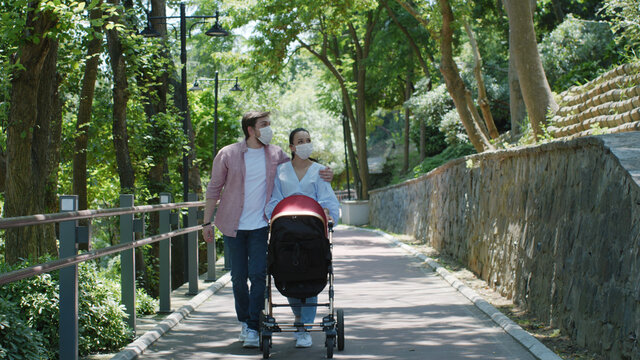
Baby Care: 5 Week Old Baby
2022-10-28 15:04
Baby Care: 5 Week Old Baby
You're past the one-month mark, and the job of caring for your baby may be a little easier. Some parents express the baby's age in weeks, while others in months. It doesn't really matter, but weeks tend to be more precise, especially in the first few months.
You'll find that your days and nights start to become more predictable. Your baby still won't have a set routine -- it won't be a few more weeks -- but your life will have a rhythm. This can make planning a little easier, not to mention being able to accommodate some tasks that require your attention.

Some parents can just focus on what needs to be done and save the rest for later. Others are very task-oriented and see each day as an opportunity to accomplish many different jobs. Often, our upbringing, personalities, training, and professional lives have a major impact on how we approach parenting.
No matter how you look at these early weeks, try to remind yourself every day that they will soon pass. Housework can wait for you or someone else to do it. Your baby will be only 5 weeks old for 7 days, so make the most of this special time!
Feeding
If your baby is breastfeeding, you may now have the skills needed to latch on effectively. Although breastfeeding is a natural process, it can take several weeks to become more comfortable and manageable.
If you find yourself staying home until now because you are not confident about breastfeeding in public, take small steps to get out of the house. Even doing this for an hour or so can be energizing.
If you're going back to work soon, you may want to start pumping breast milk from a bottle with your baby. It may take some time, and if someone other than mom gives them, the baby's resistance may decrease.
If you're bottle feeding or pumping, the process of cleaning your bottle and pump equipment is now second nature. Make a practical system that works for you and minimizes the time you need to invest.
Many parents find that preparing a day's worth of formula and storing it in the refrigerator saves time. Check the instructions on the recipe jar for storage, as some manufacturers recommend preparing each bottle immediately before feeding.
Sleeping
Your baby may still be sleeping between most of his feedings, but maybe not. There are several awake, even irritable periods each day, and your baby may just calm down when you hold him. Remember to always put your baby to sleep on his back and use a swaddle blanket or wrap to help him settle down if needed.
If it's hot, he might just need a diaper and a onesie. If it's cold, avoid overheating by wearing too many clothes. Feel your baby's back, between the shoulders and the back of the neck, to measure their temperature. Overheating puts babies at a higher risk of sudden infant death syndrome (SIDS).
If breastfeeding is going well, consider introducing a pacifier when putting your baby down. Pacifiers have been found to provide protection against SIDS.
If your baby has slept well so far, try not to take this as a guarantee that he will always sleep well. Babies are constantly changing their sleep patterns, and sleep often reflects other changes happening in their bodies. Entering a new developmental stage, changes in their sleep cycle, changes in their environment, and changes in their nutritional needs can disrupt how they sleep. They may also change sleep patterns for no apparent reason. Parents need to adjust their care to accommodate these changes, rather than making what seems like a setback frustrating. Parenting is a continuous process of learning and adaptation, right along with your baby!

Behavior and Development
Your baby may start to smile this week and try to focus on your face. The best time to find a smile is in the morning after your baby wakes up for the first time or after a feeding. Talk softly and approach. Your baby's vision is immature and doesn't become more focused until about 6 months of age.
Don't forget to give your baby supervised tummy time each day. Put toys around them, especially ones with lots of black, white, and red, as your baby will be more responsive to those colors.
Take lots of photos of this special era. You'll be surprised when you look back at how young your baby is.
Involve older children in newborn care whenever possible. Sibling relationships are built through time and lots of interaction. You cannot force your children to connect with their new siblings. They may be a little frustrated with having a new baby at home. This will come with time and loving patience.
Crying
Many babies seem to find their lungs between weeks 5 and 6 and don't find the off switch until nearly 12 weeks! It's not clear why some babies cry a lot, but others do. Some experts believe that excessive crying is due to babies feeling overwhelmed by stimulation, overtired, or having uncomfortable gas. Remember that crying is their only way to communicate that something is not right.
If you find it difficult to hear your baby cry, you are not alone. Baby's cry is uniquely designed to make it uncomfortable for you to hear. You shouldn't ignore it, so don't try. Your baby is too young to change their behavior because of how you care or how you react. Research has shown that babies cry less and cry less often when parents respond promptly.
If your baby cannot be reassured and you are frustrated or angry, you can put your baby in the crib and leave the room for a few minutes. Don't go back until you've calmed down. Call a friend or family member and ask for help. Never shake your baby to make him stop crying. Shaking a baby's brain can easily hurt.
Consult your pediatric healthcare provider if your baby cries frequently. They look for illness or injury and make sure there is no physical error. Your baby may have colic, a fancy word for a baby who cries excessively for no apparent reason. Thankfully, babies usually get rid of this by the 12th week.
Bathing
If it's summer and the weather is hot, bathing your baby every day can be an easy and fun way to cool off. Use a mild, emollient body wash that's less likely to dry out your baby's skin.
If you notice a cradle cap on your baby's scalp, wash your hair more often with a mild baby shampoo. Then, lightly brush their scalp with a soft brush to help remove scales. You can also soften the crust of the cradle cap with some olive, almond, or mineral oil. Gently massage into the area before washing. Cradle cap is a harmless skin condition that goes away on its own.

Your Emotions
Try going out with your baby every few days. As tempting as it may be to stay home, it's important to maintain some contact with the outside world. Humans are social animals, and new mothers should not be isolated. Focus this week on connecting with friends, relatives, or people you trust. If there are siblings, take your older child and baby to the park, or to a friend's house to play.
If you find yourself sad, anxious, or in tears, ask your partner or friend for support.
If you are depressed, have no appetite, feel very anxious, or have trouble sleeping, talk to your healthcare provider because you may have postpartum depression.
Your Physical Recovery
By now, you should almost feel back to your normal self. Even if your weight has not returned to normal, you have fully recovered from childbirth. Losing weight gained during pregnancy can take up to 12 months, and now is not the time to cut back on calories, especially if you're breastfeeding.
If you're breastfeeding, you may find yourself hungry all the time. Try filling your body with plenty of healthy, energy-sustaining foods that will help nourish your body and the milk you make for your baby.
Get the latest price? We'll respond as soon as possible(within 12 hours)















